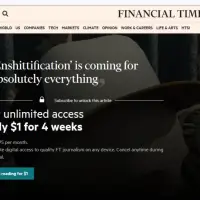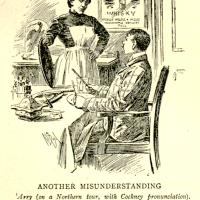
William O’Flaherty
Photo courtesy of Lancia Smith http://www.lanciaesmith.com
William O’Flaherty is the intrepid host of the “All About Jack” podcast and the Essential C.S. Lewis website. He interviewed Dr. David Clark, and includes that transcript here as part of our ongoing series on The Great Divorce. Dr. Clark is Professor Emeritus of Vanguard University and former senior editor of The Lamp-Post. I am a past and future guest of All About Jack, and am pleased to provide the links to this unique resource.
Interview
The following is a transcript of an interview recorded in early 2012 with Dr. David Clark for my All About Jack: A C.S. Lewis Podcast show. I had given him the questions in advance and he likewise prepared his answers ahead of time. He was then kind enough to give me a copy of what he wrote and permission to share it. The following is a mildly edited version of what was first shared when I posted the podcast at EssentialCSLewis.com. You can listen to the interview at this direct link.
O’FLAHERTY: Your book came out in 2012, but I’m curious as to when you became interested in The Great Divorce.
 CLARK: Funny, but now that you ask, I can’t remember! I returned to California as I finished my degree program at the University of Notre Dame and began teaching at Southern California College, the college I graduated from, now Vanguard University, in 1974. As I settled in, I began thinking about a course that would let me pursue my interest in Lewis. I had a hunch many students would enjoy such a course. I asked other faculty during my second year if they were planning to teach a Lewis course and no one was. So I offered one during a three-week, intensive summer session at the end of my second year. It went well and so I regularly offered it over the next 33 years as my New Testament and Greek schedule allowed. But I can’t recall how I came to choose The Great Divorce, except that I always put it at the end of the course. Students found it the most challenging, so I wanted them to get as much Lewis as possible before tackling that book. Then we ended the course with a potluck, in honor of Screwtape’s attendance at the Tempter’s Training College banquet. Maybe that’s why the course was so successful! Sometimes when students brought a lot of food we went out and grabbed students just walking by, and many times even the Dean dropped in! There was a prohibition about food in the classroom, but after he dropped his full plate on the carpet one time, I knew he wouldn’t report us!
CLARK: Funny, but now that you ask, I can’t remember! I returned to California as I finished my degree program at the University of Notre Dame and began teaching at Southern California College, the college I graduated from, now Vanguard University, in 1974. As I settled in, I began thinking about a course that would let me pursue my interest in Lewis. I had a hunch many students would enjoy such a course. I asked other faculty during my second year if they were planning to teach a Lewis course and no one was. So I offered one during a three-week, intensive summer session at the end of my second year. It went well and so I regularly offered it over the next 33 years as my New Testament and Greek schedule allowed. But I can’t recall how I came to choose The Great Divorce, except that I always put it at the end of the course. Students found it the most challenging, so I wanted them to get as much Lewis as possible before tackling that book. Then we ended the course with a potluck, in honor of Screwtape’s attendance at the Tempter’s Training College banquet. Maybe that’s why the course was so successful! Sometimes when students brought a lot of food we went out and grabbed students just walking by, and many times even the Dean dropped in! There was a prohibition about food in the classroom, but after he dropped his full plate on the carpet one time, I knew he wouldn’t report us!
O’FLAHERTY: What lead to your deciding to write about The Great Divorce and about how long did it take you?
CLARK: I think it started with all the questions the students had about this book. They began to see the difference between justification and sanctification and that was important. Forgiveness is one thing, but the soul must be cleansed of all sin and Lewis really came down hard on that point. To even hold on to one sin and not let God remove it was to eventually choose Hell.
 And that leads to the next point: Lewis emphasized that people choose Heaven or Hell. No matter who you are or when and where you lived, there will come a time when the ultimate choice must be made. There is no escape. And since Lewis believed that the spirit world was not limited by time or space as we are in the natural world, all of humanity was somehow present when Jesus descended into Hades after the crucifixion and before his resurrection.
And that leads to the next point: Lewis emphasized that people choose Heaven or Hell. No matter who you are or when and where you lived, there will come a time when the ultimate choice must be made. There is no escape. And since Lewis believed that the spirit world was not limited by time or space as we are in the natural world, all of humanity was somehow present when Jesus descended into Hades after the crucifixion and before his resurrection.
The students went crazy at this point; many jumped up and gave each other high fives when they “got it,” while others got a head ache from thinking so hard. And often when alumni of the class hadn’t yet graduated, they would join us at the end of the semester just to sit through the Divorce discussion again. That sure didn’t happen in my other courses! And many who had deceased loved ones who didn’t know Christ found great relief knowing that they would hear the gospel as Peter wrote in his first epistle (4:6). Others were justifiably concerned about the millions who lived before Christ- would they go to Hell just because they lived at the wrong time? The course showed them how Lewis removed this huge stumbling block to Christianity and vindicated both the justice and mercy of God.
So after writing my first Lewis book at the request of Blackwell (Oxford) and touching upon these issues, I knew it was time to tackle Divorce. I had the benefit of so many discussions at the Sunday school, college, university and seminary levels, and I had come to see just how important this neglected book of Lewis was and is.
 O’FLAHERTY: Look specifically at the book, it’s divided into three parts…explain why you took this approach.
O’FLAHERTY: Look specifically at the book, it’s divided into three parts…explain why you took this approach.
CLARK: This approach emerged from class discussions. The students didn’t have any problem grasping that people needed to own up to their sins and let God sanctify them. But they wondered why Lewis depicted Hell (or was it Purgatory?) as a drizzly, gray town of huge proportions. And yet at the end of the book, it was incredibly small! And what about the bottomless chasm between Hell and Heaven? And why does it hurt to walk on the grass in Heaven (or it is Purgatory?) So there were many “geography” questions; just think of it–the ghosts were more comfortable in Hell than in Heaven!
Clearly, Lewis was using landscapes for theological purposes, and my expertise as a PhD in Biblical Studies gave me the background for bringing all these things to light. In fact, my book has four tables showing the Biblical passages Lewis quoted, alluded to, paraphrased or was somehow influenced by.
Naturally, we needed to discuss the wonderful variety of people Lewis observed on his journey so we could identify the sin that was keeping them from enjoying Heaven. The cynical Ghost was a challenge for many; is skepticism of the motives of others a sin? But the “sociology” of the book brought a surprise; only when researching this book did I go deep enough to realize that Lewis had secretly “sent” two contemporaries to Hell who were even more famous in their time than he! And another Ghost, a young poet who preferred to live in Hell, was modeled after his pre-conversion self! Yet other research convinced me that his first visit to Oxford when he went the wrong way from the train station gave him the idea for describing Hell as he did.
 Wrapping up with an explanation of Lewis’ theology, and providing Biblical support for it, gave me the three divisions of the book. These three approaches also worked well when I gave a week-long workshop on Divorce at St. Andrews monastery for the So. Calif. Lewis Society.
Wrapping up with an explanation of Lewis’ theology, and providing Biblical support for it, gave me the three divisions of the book. These three approaches also worked well when I gave a week-long workshop on Divorce at St. Andrews monastery for the So. Calif. Lewis Society.
O’FLAHERTY: Picking just one of those segments, give us more details about what the reader will find.
CLARK: In the sociology section, Lewis displays one of his skills that often is referred to by the phrase “mere Christianity.” Many have commented on his use of metaphor, his wit and humor, his terse and clear writing skills, but he also has the ability to get down to the nub of the issue. People are quite complex, but the ghosts we meet each have just one sin keeping them out of Heaven and making Hell their preferred environment. We should be so blessed to have only one thing between us and God!
By focusing upon just one sin, Lewis keeps the interactions between the ghosts and the spirits who come to meet them simple enough for anyone to grasp. The principle that emerges is just this: every sin must go, God wants to remove it, but we must give Him permission to do so. This is “mere” sanctification, and obviously Lewis believed it would for most people continue after the death of the body. This would be “mere” Purgatory. And it must continue to completion if Heaven is to be bearable.
O’FLAHERTY: Besides those major divisions, you provide other elements, both at the beginning as well as three appendices. Tell us briefly about them as well as why you include them in your book.
CLARK: I supplied a brief list of definitions for theological terms to help people follow the discussions but I kept these at a minimum. I had two reasons for doing so: many lay Christians aren’t clear on the meaning of these terms, and even denominations don’t always agree. I also gave a brief chart of the various ghosts and how much space Lewis devoted to them so their relative importance could be seen. I’ve already mentioned the four-part list of Biblical sources.
The largest appendix by far (40 pages) is an alphabetical list of the people, places, concepts, and sources Lewis referred to. This got to be quite a project but I did my best to track them all down. No doubt I missed some details, but there’s quite a lot of information that will interest most readers. By putting all these into an appendix, the main discussion moves along more smoothly.
 O’FLAHERTY: This isn’t your only book about Lewis, while the title of the other one (C.S. Lewis: A Guide to His Theology) gives a good indication about its focus, how would you summarize it to help the listener know why they would want to get a copy?
O’FLAHERTY: This isn’t your only book about Lewis, while the title of the other one (C.S. Lewis: A Guide to His Theology) gives a good indication about its focus, how would you summarize it to help the listener know why they would want to get a copy?
CLARK: The scope of my first book is much wider (as the title implies) than my treatment of Divorce. From most of Lewis’ works I organized his beliefs, theology and “what if’s” (his more controversial theological speculations) into a number of areas. These include the place of humanity in God’s creation: namely, between the angels above and the animals below. We have much in common with both groups, and this is a fascinating area of Lewis that is often overlooked. He cared so much for animals, and found much mystery in them.
I also discuss at some length how Lewis took on the role of evangelist. Some of his writings are overtly Christian while others, especially the science fiction trilogy, are more covert. But they all serve to point people to Christ. Often Lewis also explains and defends the faith at the same time. So the reader will find helpful discussions on the various roles Lewis played in his life: as an apologist, theologian, evangelist, and even prophet. My students were invariably amazed that what they were reading that was written decades ago seemed to be speaking to their own times.
Next I focus particularly on Till We Have Faces and show how Lewis changed the myth so that the palace in which Psyche lived was invisible to Orual, except for a brief instant. Here I argue Lewis is showing how important it is for us to walk by faith and not demand proof from God. Once Orual persuaded Psyche to look upon her husband’s face, she was driven out and given impossible tasks to perform. How could Lewis resist adapting such a story for Christian purposes?
T hen I conclude by explaining how Lewis described God’s redemptive plan for us. First comes the chapter (the largest chapter) treating the soul: sanctification, the seven principles of Purgatory, the descent of Christ, and various questions such as “will all be saved,” is there a “second chance,” beyond space and time, and so forth. This chapter in particular provided the impetus for my second book.
hen I conclude by explaining how Lewis described God’s redemptive plan for us. First comes the chapter (the largest chapter) treating the soul: sanctification, the seven principles of Purgatory, the descent of Christ, and various questions such as “will all be saved,” is there a “second chance,” beyond space and time, and so forth. This chapter in particular provided the impetus for my second book.
The next chapter completes the study of God’s redemptive plan for us by focusing on our bodies. But what comes after the resurrection? The Scriptures, and Lewis, had some interesting things to say about God’s plan to restore the whole universe, and our part in that once we are completely sanctified and resplendent in our resurrection bodies. Exciting stuff!
So it’s a very helpful summary, even though Blackwell put a limit on the number of words. Maybe that was a good thing, since there’s always more to be said in a book like this. I guess it’s true that a writer never really finishes a book; we just have to abandon them. This book will save the reader about thirty years of study and discussion of Lewis’ theological works!
O’FLAHERTY: Taking a step back, tell us more about your journey with the works of C.S. Lewis and how he has influenced your thinking.
CLARK: Each time I taught my Lewis courses (about 50 times, I suppose, Part I and II), I expanded my reading of him, including some of his contributions to his own field of English language and literature. I’ve also read a fair amount of secondary material about him by a variety of authors. But my chief interest has been the theological side of his output, and I’m content to leave the many details of his life to the biographers.
What I’ve come to appreciate about Lewis is his insights into the Bible. His stepson Douglas emphasized at a workshop I attended at St. Andrews how Lewis read the Bible “every day” and I believe it! There is hardly an obscure “corner” of the Bible that his keen mind hasn’t visited and reflected on. I’m a professional Bible scholar and he an admitted novice in Biblical studies, but he sure got much farther along in his insights into the text than most!
He was an Anglican and so recited the creed every week. The doctrines in the Apostles and Nicene Creeds are the basic beliefs of the historic church which believers must accept. But there are many other Biblical subjects that aren’t included, and I’ve come to believe by much experience that his poetry and fictional works were the venues he used to speculate about what the Bible meant; especially in the area of eschatology. The ending of The Last Battle strikes many chords with the Revelation of John, and That Hideous Strength does also, to give just two examples.
 I think the circles Lewis usually moved in weren’t as conservative as he, so fiction gave him a great way to “suggest” what the Bible in his opinion probably meant on a wide variety of subjects that were somewhat controversial and at the same time, disguise his opinions from all but a few who really know the Bible.
I think the circles Lewis usually moved in weren’t as conservative as he, so fiction gave him a great way to “suggest” what the Bible in his opinion probably meant on a wide variety of subjects that were somewhat controversial and at the same time, disguise his opinions from all but a few who really know the Bible.
And this is where I came in, if I may be so bold. Most Bible scholars have their hands full with all the areas of Biblical studies, theology, church history, and so forth. Adding Lewis to the mix is overwhelming. And most Lewis scholars have a lot of ground to cover, so getting into Biblical studies very far is a lot to ask of them. This probably explains the astonishing fact that Divorce has been so neglected for 66 years. But I have a lot of drive, read very quickly, and have good stamina, curiosity, etc. and I was able to combine them both. But it still took me more than 35 years to get around to this book!
O’FLAHERTY: Any closing thoughts about your book, or about Lewis you’d like to share before we end?
CLARK: Lewis was able to settle on what was most important: our relationship with God. That, in turn, is key to our relationship with our fellow human beings and even the environment. He had quite a heart for animals, you know, and his passion for them really comes through forcefully in his essay “Vivisection.” The Biblical perspective, for him, was the most important world view a person could have. When he finally gave into that perspective, it was like the rising of the sun, he said, because by it he could see (understand) everything else.
And for Lewis, that relationship centered upon Christ. Everyone must choose or reject him; there will be no escape. Lewis was bold enough to stand for this truth at a time when he complained that so many of his fellow Britons seemed to have no sense of sin, and therefore no conviction that they needed to repent of anything or that they needed salvation. I don’t think things have improved very much since his time! It’s a real privilege for me to be able to write about him, and I hope that now many more than just my students will see what a wonderful legacy he left for us in The Great Divorce. He would want us to know what he wrote and meant, because he was pointing us to Christ, his Lord and Savior.






















Pingback: Podcast Discussion on the Hobbit Film at All About Jack | A Pilgrim in Narnia
Pingback: Love That Is Not Love: The Character of Pam in The Great Divorce | A Pilgrim in Narnia
Pingback: Finding that Elusive Title: The Many Names of The Great Divorce | A Pilgrim in Narnia
Pingback: The Deeper Meaning of “The Great Divorce” | A Pilgrim in Narnia
Pingback: The Deeper Meaning of “The Great Divorce” (Feature Friday) | A Pilgrim in Narnia
Pingback: The Deeper Meaning of “The Great Divorce” (Throwback Thursday) | A Pilgrim in Narnia
Pingback: Good C.S. Lewis Studies Books That Did Not Win the Mythopoeic Award: Part 3: Literary Studies on C.S. Lewis | A Pilgrim in Narnia